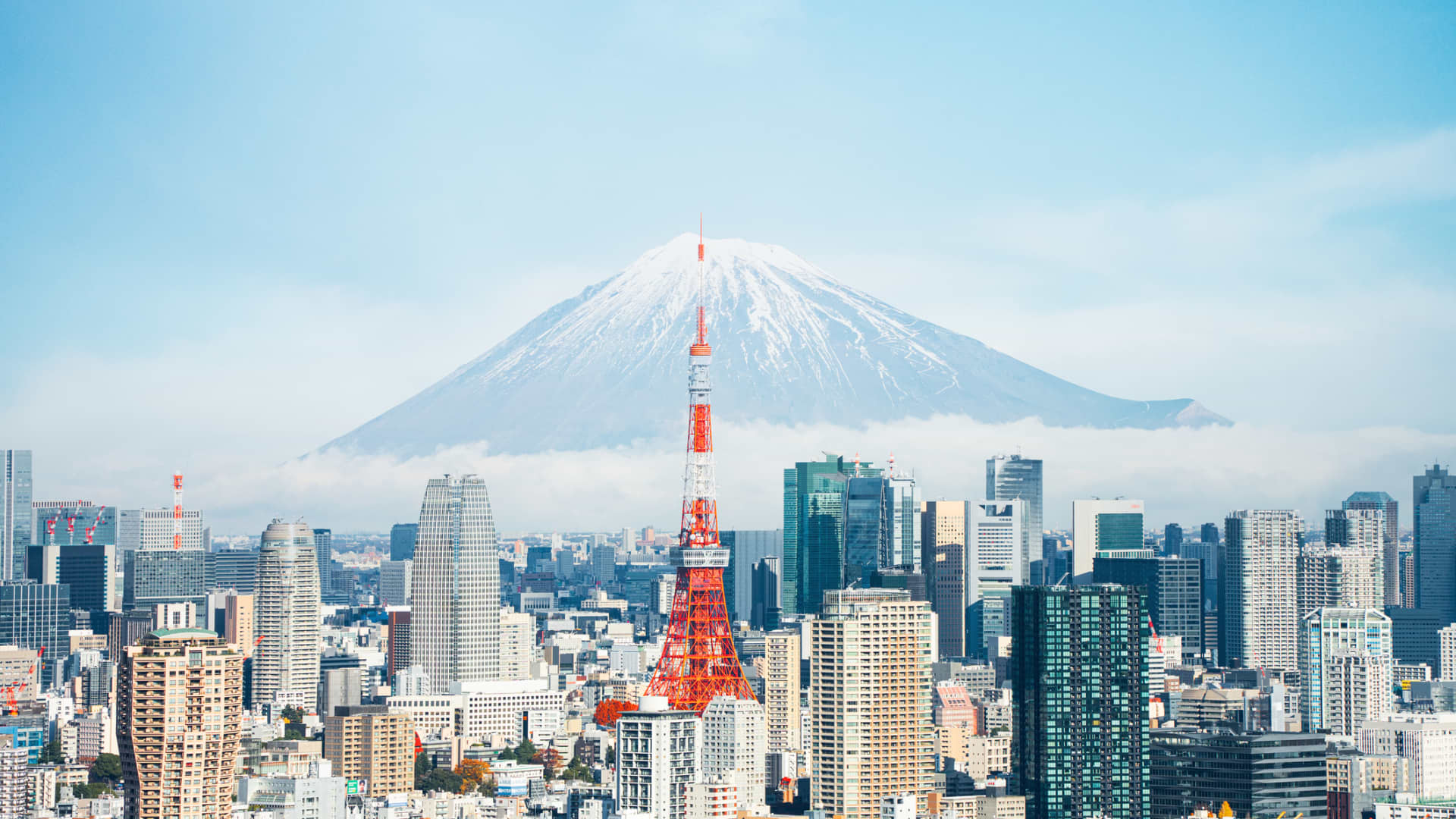
Skyline of Tokyo, Japan.
Jackyenjoyphotography | Moment | Getty Images
Japan’s Nikkei 225 tumbled over 4% on Monday, following a mixed set of economic data out of Japan and as traders reacted to the election of incoming Prime Minister Shigeru Ishiba.
Japan’s August retail sales climbed 2.8% year on year, beating Reuters poll estimates of a 2.3% rise, and up from a revised 2.7% rise in July.
Ishida had beaten Economic Security Minister Sanae Takaichi in the final round of the Liberal Democratic Party election on Friday, sending the yen into a volatile session.
That means the Bank of Japan “will not face any political hurdle for hiking rates further,” Ryota Abe, economist at the global market and treasury department of Sumitomo Mitsui Banking Corporation, told CNBC.
A higher interest rate typically strengthens the yen and puts pressure on Japanese stock markets, which are heavily weighted by exporters. A strong yen would then make their exports less competitive.

The yen had weakened against the dollar early on Friday as Takaichi won the first round of voting, but later reversed course and strengthened as Ishiba won the runoff vote after markets closed.
Abe noted the yen had reversed course “as almost all market participants including SMBC and other political analysts had expected Ms. Takaichi to win in the run-off vote.”
Takaichi is an advocate for lower rates, and had clearly stated her stance that she would not support the Bank of Japan’s policy to raise interest rates to spur economic growth, he added.
Steven Glass, managing director at Pella Funds Management, holds a different view, telling CNBC’s “Squawk Box Asia” that inflation is still very much “imported” owing to the weak yen.
He adds that because of that, “it does not make sense” for the BOJ to be hiking rates, and he also sees that with Ishiba as prime minister, “[it] increase our resolve that BOJ will not hike rates.”
On Monday, industrial production in Japan dropped 4.9% year on year in August, more than the 0.4% fall in the month before.
On a month-on-month basis, industrial production dropped 3.3%, a sharper decline than the 0.9% expected in a Reuters poll and compared with the 3.1% rise in July.
Chinese rally puts pressure
The Nikkei’s decline on Monday also comes at a time when China’s markets have been surging. On Friday, the mainland’s CSI 300 recorded its best week since 2008 and Hong Kong’s Hang Seng index had its largest weekly gain since 1998.

On Monday, the CSI 300 rose over 6%, leading gains in Asia after China’s official purchasing managers’ index reading for September came in at 49.8, a softer contraction than the 49.5 expected by economists polled by Reuters.
Britney Lam, portfolio manager from Magellan Capital, pointed out that the Japan market has been seen as the “anti-China trade.” In other words, when the Chinese market isn’t doing well, Japan markets will do well.
“Now given China’s stimulus and turn of sentiment, Japan market will come under pressure,” she said.
China’s central bank last week rolled out a slew of stimulus measures, including lowering the reserve requirement ratio for banks and also cutting its short-term interest rates. On Monday, the PBOC also said a mortgage rate cut announced last Monday is set to go into effect at the end of October.






